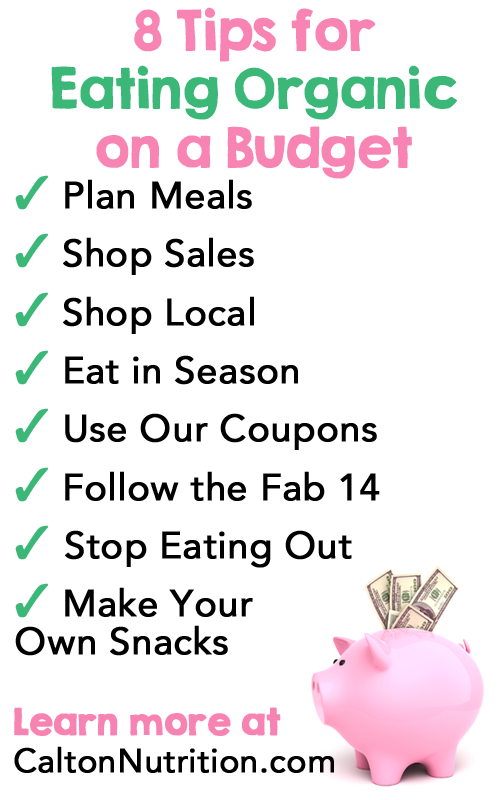This week we want to share with you our best tips for eating organic – without breaking the bank. Let's face it, avoiding pesticides, GMOs and unwanted chemicals can be pricey, and time consuming which is why we wrote our book, Rich Food Poor Food. The good news is, there are a few simple steps you can take now to get your food budget back on track before the holidays.
Here are our top 8 tips:
- Plan your meals. Setting aside 30 minutes a week to create a weekly menu and meal plan, and to evaluate what you have on hand to use for those meals will eliminate the need to purchase unwanted items, or items you are purchasing “just in case”. When you've got a solid meal plan, you know exactly what to buy, and nothing will go to waste.
- Shop sales. Check out the local flyers before you head out. You may be surprised to notice that some other local markets, or grocery stores are having sales on specific items you buy frequently. Be open to trying new stores!
- Shop local. Just like you should be checking flyers before heading out the door, you should also be checking with local butchers, dairy farms, and produce stands. Not only can you get a lower price when purchasing your meat in bulk, but you'll also be supporting and sustaining local business. It's a win-win!
- Eat in season. Back to the local produce stands, which are generally a less expensive route (and offer a more micronutrient rich fruit or vegetable). Shopping in season ensures you're getting the best bang for your buck nutritionally and financially.
- Use coupons. We did the work for you, and collected coupons for some of our favorite organic and non-gmo retailers! These are available in the Rich Food Resource Center. Never hesitate to reach out to a brand directly if you have a favorite that you can't seem to find a coupon for. Most of these companies are small, and appreciate your business.
- Choose from our fab 14 terrible 20. Another perk of checking out the Rich Food Resource Center! We want you to choose organic produce whenever possible, but we realize sometimes that just isn't an option. This list will provide you with the produce that are absolutely a must buy organic, and others that are ok to purchase conventional if needed.
- Skip coffee shops and cut back on dining out. Most coffee shops (think: Starbucks) are not using quality coffee, and most restaurants do not offer organic or non-gmo options. By skipping these places, and making your own coffee at home (try this seasonal treat!) and cooking meals that you know are micronutrient rich, you'll be able to save money that can be put toward your food budget.
- Make your own. Processed food is something we don't generally recommend. However, we know some of you have small children you may be purchasing organic snacks for. Purchasing the individual ingredients and crafting these recipes at home (such as granola bars, cookies, trail mixes etc…) will take a little extra time, but save you BIG in the long run!
(
What are your best tips for keeping your food budget under control while still eating organic? We'd love to hear, be sure to share with us here!












